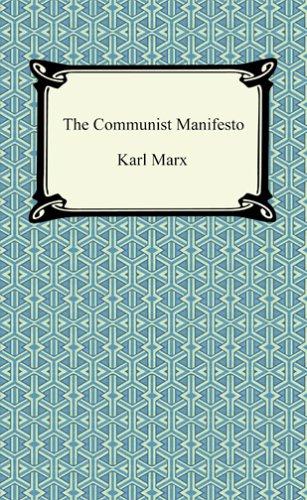jussi reviewed The Communist Manifesto by Karl Marx
Historically fascinating
4 stars
Interesting read

Paperback, 80 pages
English language
Published Jan. 30, 2005 by Digireads.com.
Available under a Creative Commons Attribution-ShareAlike License: www.marxists.org/archive/marx/works/1848/communist-manifesto/
One of the most influential political tracts ever published this short book succinctly explains the aims and purpose of the Communist League of the 19th century, giving the author’s theories of the class struggle which they assumed would inevitably lead to world wide communism.
Full text available at Project Gutenberg too: www.gutenberg.org/files/61/61.txt
Interesting read
The manifesto is not a highly complex and detailed view of Marxism and its' concepts. It served as an easy read for people to get a simplified understanding of the oppression structures during the industrial revolution and lists a set of goals which should be achieved to establish a communist society.
This should be seen as an easy introduction to the Marxist philosophy and a potential starting point for further research into this topic.
I think it's pretty good. It's pretty polemical and lays out the political goals of communists, it doesn't really get into Marxist philosophy and the methods in which Marx comes to his conclusions though. I'd probably recommend "Socialism: Utopian and Scientific" as a better introduction to Marxism.
3.6 stars. If this were written today, people would demand research, stats, and data to support its conclusions. There were a lot of declarations where Marx and Engels just said things. “The proletariat is this,” and “The bourgeois thinks that” type of phrasing.
There also oddly seemed like there were unfinished thoughts. For example, free education and the abolishment of child labor is advocated for, and the paragraph where this is discussed ends with “etc, etc.” Really Marx? “etc, etc?” I can see Lenin now, channeling his inner Marx — “We’re going give power to the worker, and like, whatever.”
It also decried prison reform, humanitarianism, and the prevention of the cruelty to animals as “conservative bourgeois socialism.” That seems a bit cynical to me. The manifesto seems to be implying that these issues would just go away without the bourgeois, and that a society where workers are in control …
3.6 stars. If this were written today, people would demand research, stats, and data to support its conclusions. There were a lot of declarations where Marx and Engels just said things. “The proletariat is this,” and “The bourgeois thinks that” type of phrasing.
There also oddly seemed like there were unfinished thoughts. For example, free education and the abolishment of child labor is advocated for, and the paragraph where this is discussed ends with “etc, etc.” Really Marx? “etc, etc?” I can see Lenin now, channeling his inner Marx — “We’re going give power to the worker, and like, whatever.”
It also decried prison reform, humanitarianism, and the prevention of the cruelty to animals as “conservative bourgeois socialism.” That seems a bit cynical to me. The manifesto seems to be implying that these issues would just go away without the bourgeois, and that a society where workers are in control would be benevolent for some unknown and unexplained reason.
I do like the idea of workers of the world uniting though. Collectively owned businesses. Big thumbs up. Keeping one’s share of the means of production. Also great. But like all old political and economic texts, we give too much credit to its creators. Marx was just a man. People do the same thing with the U.S. Constitution too; they think it’s flawless.